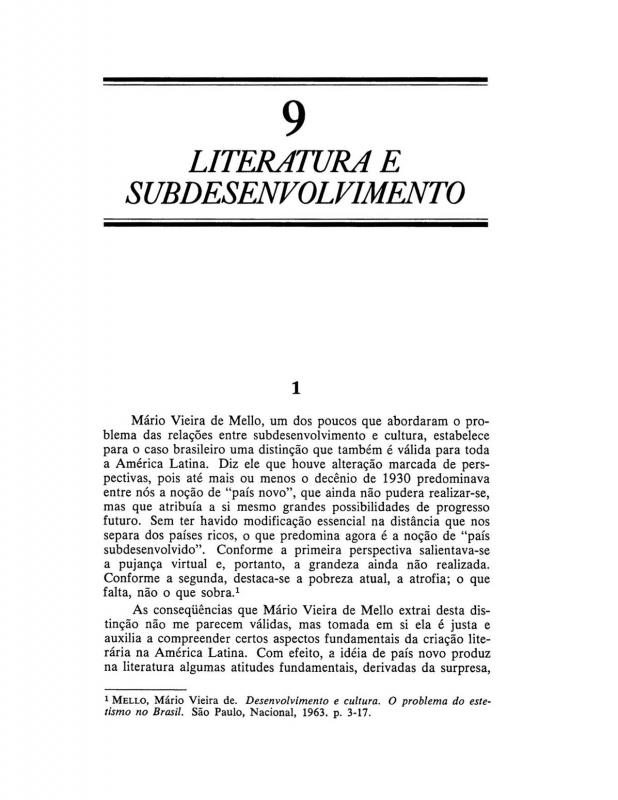This is a hitherto unpublished text that was part of the collection of articles by the writer, professor, and literary critic Antonio Candido (1918–), titled Recortes [Clippings], and published in 1993. In discussing writers who have been studied on other occasions—such as Silvio Romero (1851–1914), Joaquim Nabuco (1849–1910), and Eduardo Prado (1860–1901), among others—Candido attempts to show the evolution of a more enlightened view of Latin America, questioning ideological ideas inherited from the nineteenth century such as the concept of nationalism. While acknowledging the limitations of the particular time when he was writing, he shows that Brazilian intellectuals of that period tended toward a more lucid sense of continental identity, unlike both the exaltation and euphoria of the Romantic period and the pessimism fueled by the notion of “backwardness” that was a typical subject of discussion in the 1870s, as he mentioned in his essay “Literatura e subdesenvolvimento” [Literature and Underdevelopment] (1973). Though Candido reveals his sympathies for cosmopolitan attitudes that promote progress and social equality, he nonetheless addresses the questions and concerns expressed by intellectuals who hold different points of view. He concludes his essay by calling attention to the work of Manoel Bonfim (1868–1932), whom he considers to be the least distinguished but the most perceptive among the intellectuals he has reviewed—one whose insights shield him from contemporary prejudice and produce some original thinking on Latin America; Bonfim was one of the first to address the issue of miscegenation in the Americas. As the creator of concepts such as “parasite-ism,” Bonfim also discussed the nature of Latin American elites and their ability to adapt and compromise in order to maintain their position and privilege, with utter disregard for the disastrous consequences of their actions.
For additional information on this subject, see the essay by Antonio Candido “Literatura e subdesenvolvimento” [doc. no. 776023], in which the renowned literary critic reviews Latin American literature from the Brazilian perspective at two critical times: the 1930s and the post-World War II years.

